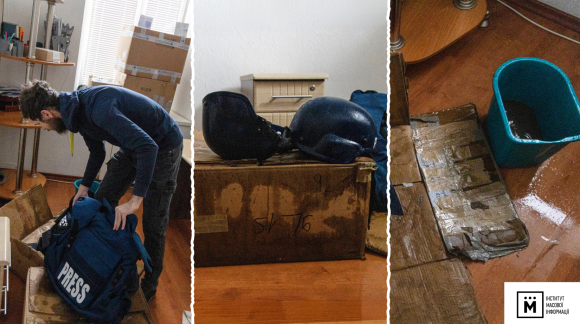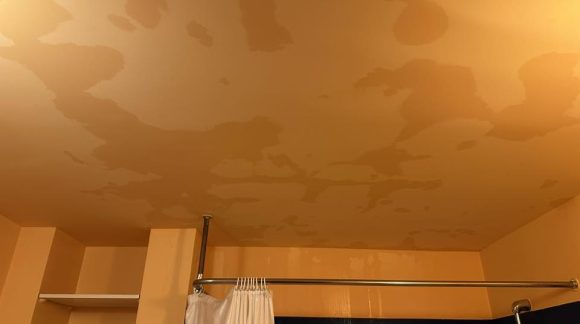In wartime, media outlets should ensure the safety of reporters going on assignments, said Oksana Romaniuk, director of the Institute of Mass Information, at the panel “Guarantees and Insurance: Who Will (Not) Take Care of Journalists in Wartime and How?” organized by the Heorhiy Gongadze Award. The post-release was provided to the IMI by the Heorhiy Gongadze Award.
“Before the invasion, safety used to be journalists’ personal matter. Even we, at the Institute of Mass Information, used to say, ‘Safety begins with you, you should do this and that.’ Now the responsibility lies with the media outlet sending crews on assignments. Given international practice, the crew includes not only a reporter, but also other specialists. And the media outlet should take care of everyone,” says Oksana Romaniuk.
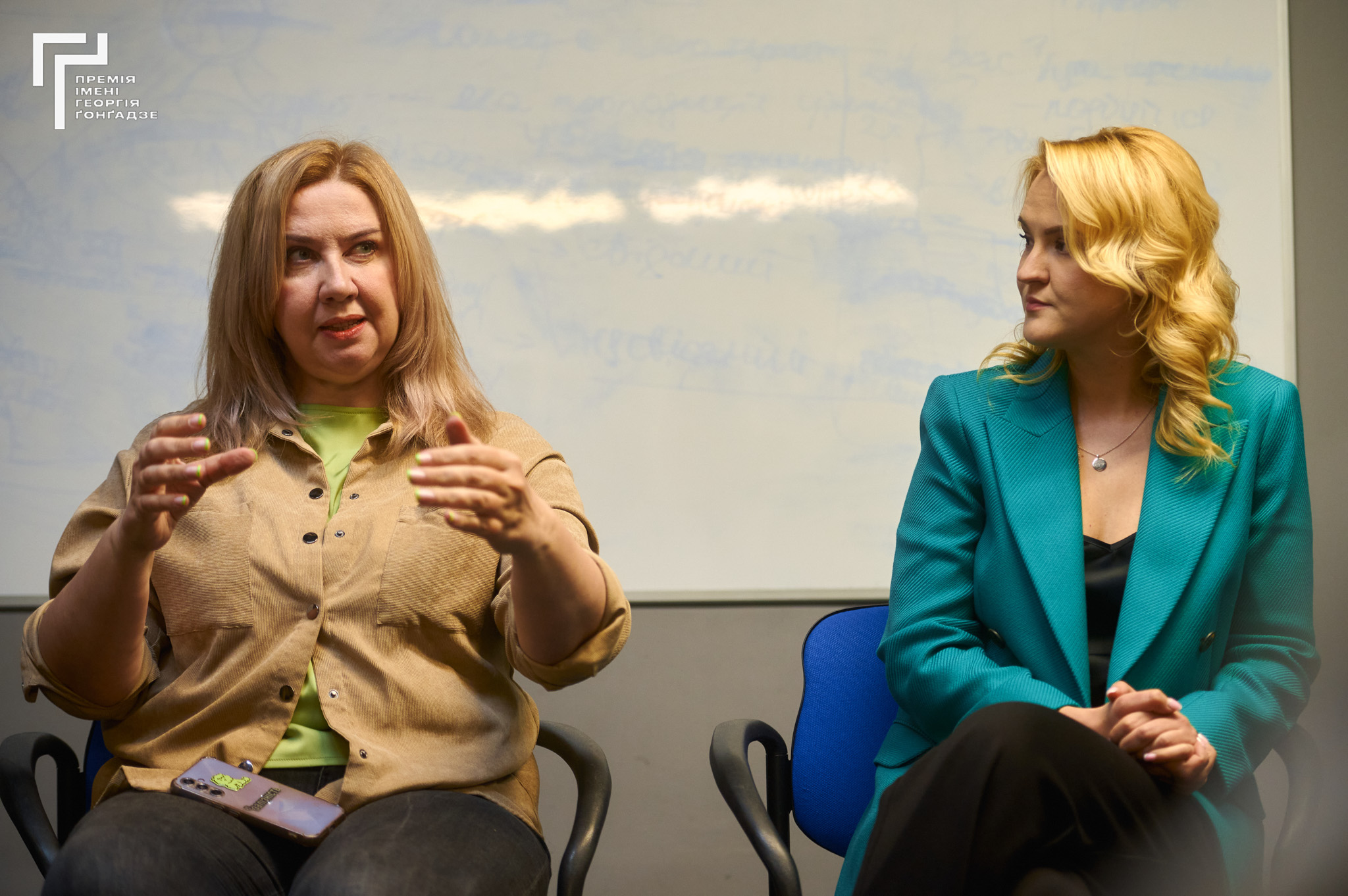
Oksana Romaniuk (left) and Suspilne HR director Viktoria Sydorenko. Photo by the Heorhiy Gongadze Award
She added that many media professionals working to cover shelling strikes end up using their own safety gear, such as tourniquets, to help the victims.
“We are all very traumatized. While before the invasion we used to talk about burnout, now we talk about fatigue. In my opinion, this aspect is not being discussed enough,” Romaniuk added.
The IMI director also stressed that safety should not be an obstacle to journalists’ access.
“For example, if the State Emergency Service bars journalists from accessing a shelling site due to the risk of falling debris, by law they should not be doing this, this responsibility lies with the media outlet and the journalist. What matters here is preparedness and awareness at the media outlet,” said Oksana Romaniuk.
At the same time, she added that a mechanism should be in place in the event of something happening to media workers, such as being captured by the enemy; these cases should be separately addressed by the state. Oksana Romaniuk believes that legislation initiatives, recommendations to media outlets, and insurance are the solution to these issues.
MP Yaroslav Yurchyshyn and Viktoria Sydorenko, the human resources director at Suspilne, were also present at the panel.
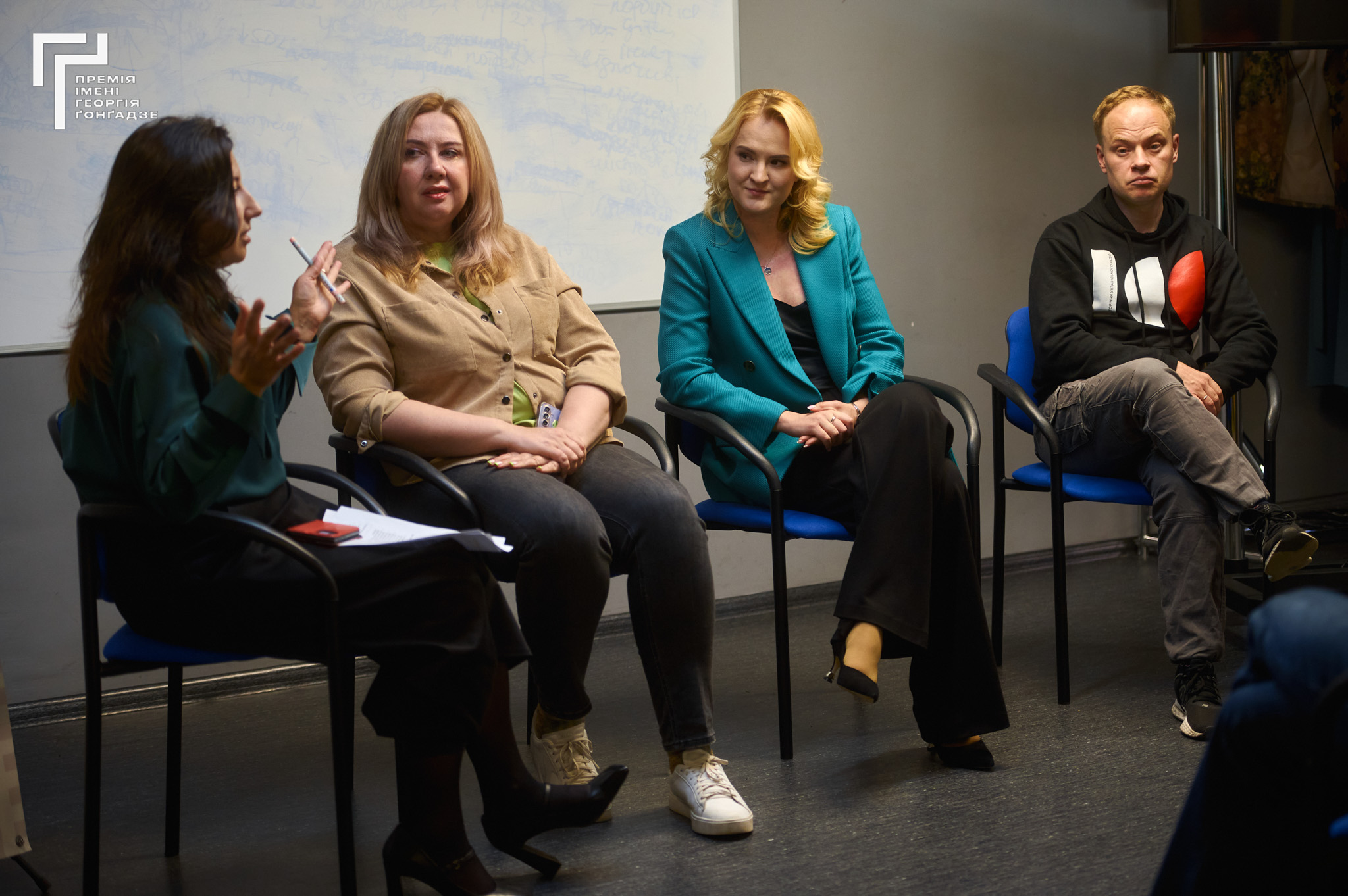
Panelists at the discussion “Guarantees and Insurance: Who Will (Not) Take Care of Journalists in Wartime and How?” Photo by the Heorhiy Gongadze Award
Viktoria Sydorenko said that for Suspilne, a reporter’s safety has three aspects. “First is the physical component, the second is mental health, and the third is financial guarantees. When we talk about physical safety, this includes providing a first-aid kit, a helmet, and a bulletproof vest, as well as training, classes. At Suspilne, for example, journalists undergo mandatory training,” she explained.
She added that working with difficult content affects journalists’ mental health. Which is why Suspilne management reminds employees to take vacations, organizes trainings, retreats, and works with a therapist.
Yaroslav Yurchyshyn mentioned cybersecurity. “This concerns both attacks on websites and information campaigns targeting media outlets and individual media workers. It is very important to study, improve, and develop this aspect. There is room for cooperation between the media and special services here, because there are shared interests. We need protected sources of information,” the MP noted.
Yaroslav Yurchyshyn considers the safety of media offices to be another aspect of the issue: “There is no understanding of what is the media outlet’s responsibility, the team’s, the owner’s. As it stands, this is a ‘drowning man must save himself’ situation. We need to look for a solution through a platform that could develop certain proposals for the state, even if we realize that this will fall on the shoulders of the initiators themselves. We need to show that this is how it works: through the involvement of the media community, through civil society organizations.”
Yurchyshyn believes that a task force is needed to work on guarantees for journalists and media structures. He hopes that such a platform will be found in the civil society sector and, for his part, plans to involve players from the state.
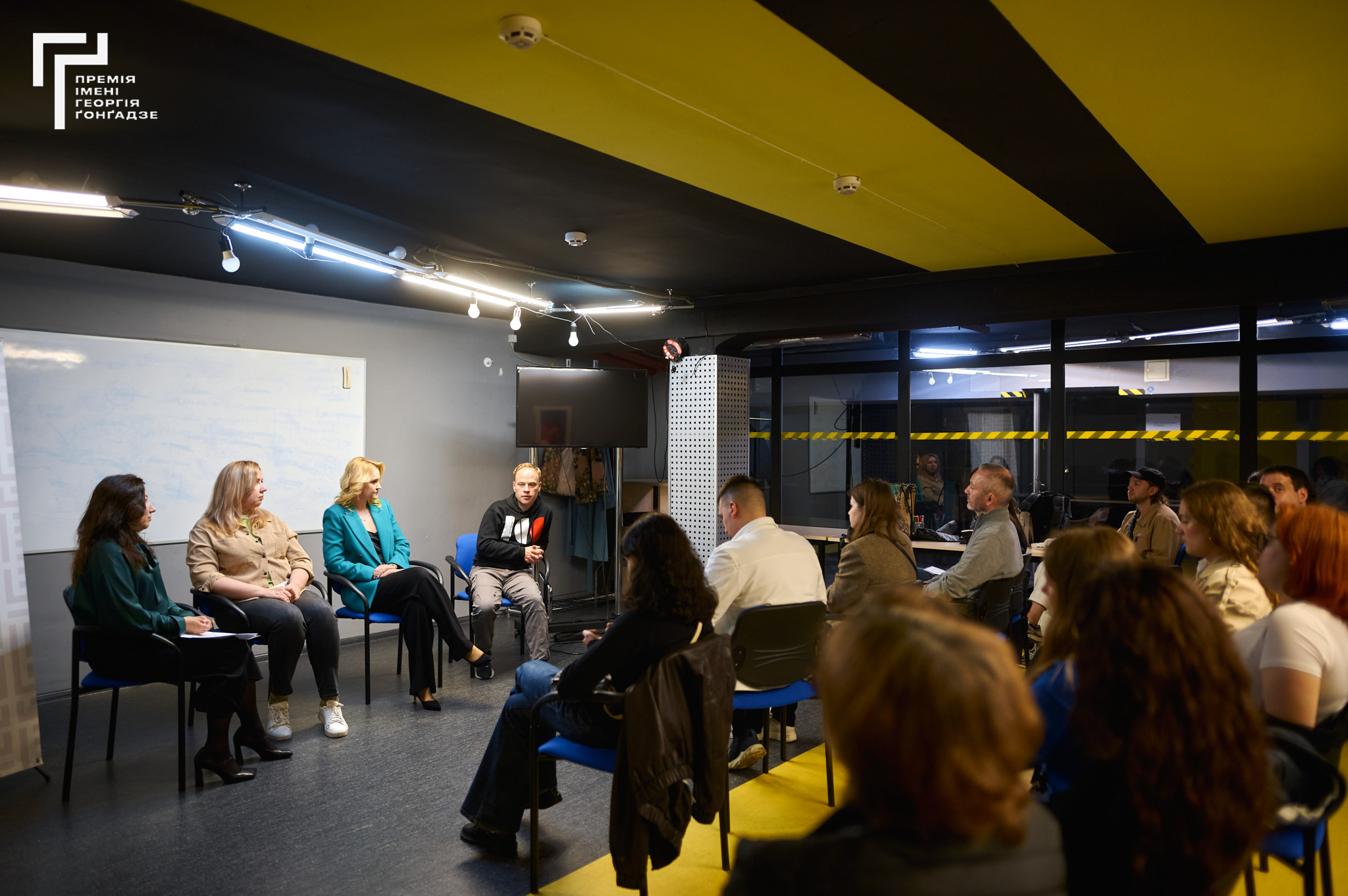
The panel “Guarantees and Insurance: Who Will (Not) Take Care of Journalists in Wartime and How?” Photo by the Heorhiy Gongadze Award

